 Petzlover
Petzlover Both Jungle-Bob and Lykoi are originated from United States. Both Jungle-Bob and Lykoi are having almost same weight. Jungle-Bob may live 5 years less than Lykoi. Both Jungle-Bob and Lykoi has same litter size. Both Jungle-Bob and Lykoi requires Moderate Maintenance.
Both Jungle-Bob and Lykoi are originated from United States. Both Jungle-Bob and Lykoi are having almost same weight. Jungle-Bob may live 5 years less than Lykoi. Both Jungle-Bob and Lykoi has same litter size. Both Jungle-Bob and Lykoi requires Moderate Maintenance.
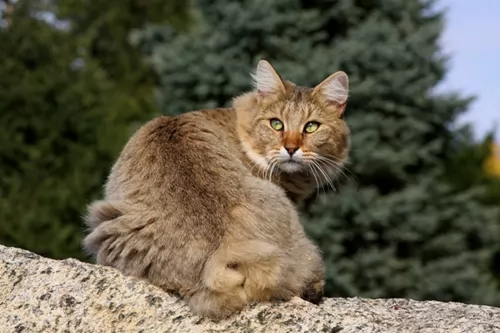 What is notable about this cat is that it can have a Bobcat like tail or it can have a full-length tail. They’re a fairly new breed and have been bred since the early 1990s. The whole purpose of breeding the cat was to develop a jungle cat hybrid with a spotted pattern.
What is notable about this cat is that it can have a Bobcat like tail or it can have a full-length tail. They’re a fairly new breed and have been bred since the early 1990s. The whole purpose of breeding the cat was to develop a jungle cat hybrid with a spotted pattern.
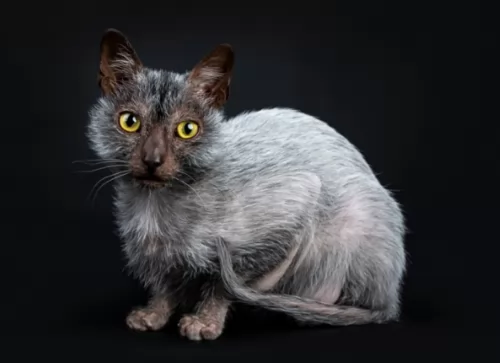 These cats were first discovered in 2010 in Virginia. It was Patti Thomas who named the breed Lykoi.
These cats were first discovered in 2010 in Virginia. It was Patti Thomas who named the breed Lykoi.
It was in 2012 that the cat breed went before the International Cat Association and is now recognized as a Championship Breed.
There is also work being done to expand the cat’s breeding program. It’s a naturally occurring gene in the feral cat population. There are still Lykoi cats born to the feral cat population.
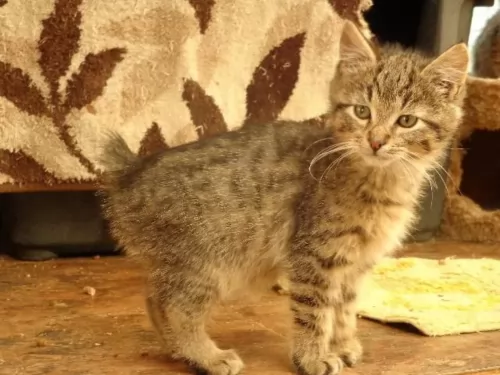 These are big cats and can weigh between 6 and 10kg. The leopard-spotted coat comes in all shades – brown, tawny, gold, silver and black with you not likely to see solid shades.
These are big cats and can weigh between 6 and 10kg. The leopard-spotted coat comes in all shades – brown, tawny, gold, silver and black with you not likely to see solid shades.
The coat can be short or medium-length. The cats have a thick muzzle and he has hooded eyes. The ears are fairly large and placed high o the head. They’re well muscled with long legs with the hind legs being fairly longer than the front legs
The Jungle-Bob loves his food. He loves interactive toys that hold the food and encourage him to think about how to get the food out.
He loves his human family and bonds strongly with them, loving to play rough and tumble games with the kids. He gets on well with children as well as other pets in the house.
You may find your Jungle-Bob being shy and not wanting to be friendly with strangers. They’re intelligent cats and have been known to learn how to open certain doors and cupboards. They can also be taught to walk on a leash.
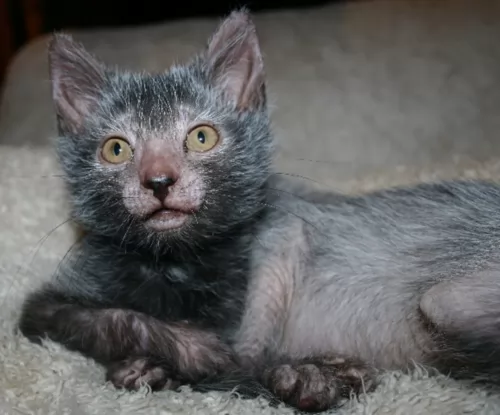 The Lykoi varies quite a bit in looks and you get some that are completely covered in hair and some that are actually partially hairless. Strangely, they are born with quite a lot of black fur.
The Lykoi varies quite a bit in looks and you get some that are completely covered in hair and some that are actually partially hairless. Strangely, they are born with quite a lot of black fur.
The cat has a solid black roan coat with no undercoat. Even though the cat is partially hairless, it molts a couple of times each year.
People are inclined to think that the little bit of hair would be wiry, when in fact it is soft and silky. It's just that it looks like bristles, but is actually not. People are always surprised by the coat's softness.
The Lykoi has a lean muscular body with large ears and eyes. He is a medium-sized cat and can weigh between 4 to 6kg.
The Lykoi is a friendly, people-oriented cat that is affectionate towards its human owners. This is also a playful cat breed and he is also intelligent and inquisitive.
The Lykoi is fond of his human family and makes a wonderful companion.
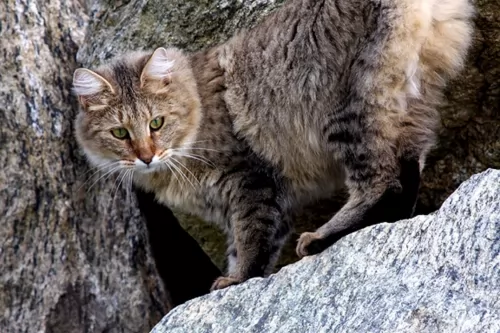 Your Jungle-Bob, just like all cats with a wild side, should have a largish outdoor cage. Keeping a hybrid cat like the Jungle-Bob is far more challenging than keeping a regular domesticated cat.
Your Jungle-Bob, just like all cats with a wild side, should have a largish outdoor cage. Keeping a hybrid cat like the Jungle-Bob is far more challenging than keeping a regular domesticated cat.
Hybrid cats like these are always active and they require lots of exercise. They can learn to walk on a leash.
Hybrid cats like this are made up of many species and they come with lots of interesting fur patterns. but that shouldn't be your motivation for buying one.
Think carefully before you own one of these cats as they’re beautiful for sure, but sometimes they become too much for the owners and then they land up in shelters. Be informed before you invest in one of these cats.
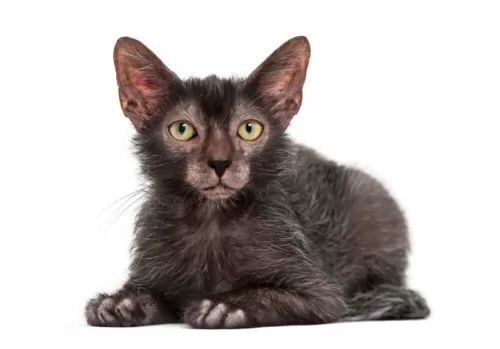 People who have owned the Lykoi say that they make a remarkable and devoted pet. They want a lot of attention and they’re willing to give attention as well.
People who have owned the Lykoi say that they make a remarkable and devoted pet. They want a lot of attention and they’re willing to give attention as well.
They’re social cats and want to spend time with their human companions. A cat that doesn’t receive the love and care it needs can become heartbroken and sick.
If you have one of these cats and your life has changed so that you can’t give it the attention it craves, at least provide it with a feline companion.
Cats aren’t all the aloof creatures they’re made out to be and your Lykoi is capable of making you a splendid companion.
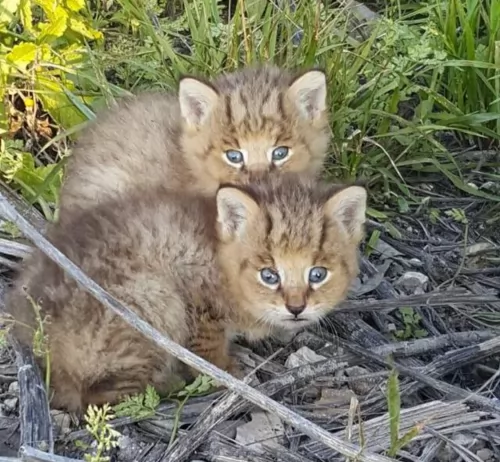 Even a trip to the vet can be a challenge and it can be a frightening experience for a hybrid cat. They may even need to be sedated before the vet can examine them.
Even a trip to the vet can be a challenge and it can be a frightening experience for a hybrid cat. They may even need to be sedated before the vet can examine them.
Also, did you know that in terms of rabies, which can be a fatal disease, it is not positive that these vaccines even work with a hybrid cat? So if your pet is exposed to rabies, it could spell great danger for you and your hybrid pet.
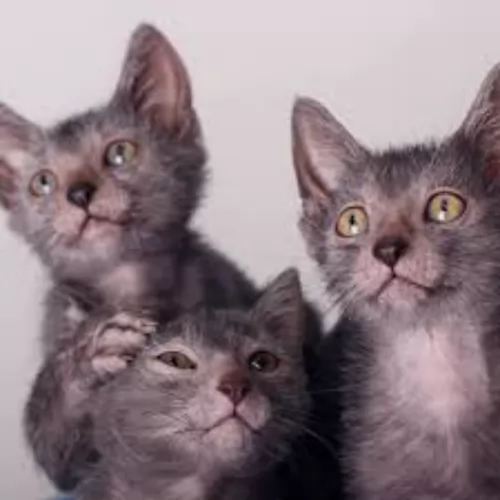 This cat is vulnerable to being cold and it should essentially be an indoor cat. If your Lykoi cat escapes, it can’t possibly keep warm on its own.
This cat is vulnerable to being cold and it should essentially be an indoor cat. If your Lykoi cat escapes, it can’t possibly keep warm on its own.
The Lykoi cat has not shown any specific health problems but being hairless, it is vulnerable to respiratory issues. Eye discharge as well as perpetual sneezing are characteristics of a cat with Feline Upper Respiratory Disease.
The cat’s mouth, sinuses, nasal passages, and upper airway are all affected. Your cat will need to get to the vet for a diagnosis and medical treatment. There are vaccines to prevent feline upper respiratory disease.
Any cat can develop this disease and your cat may have trouble breathing.
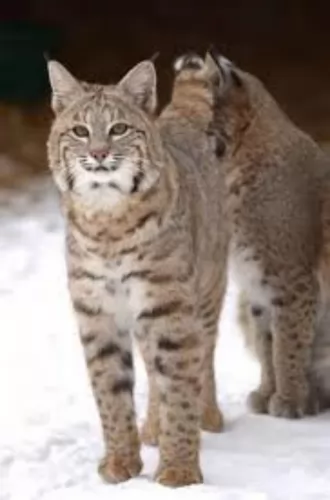 Before you invest in one of these hybrid exotic cats do research because they’re different from your regular domestic cats.
Before you invest in one of these hybrid exotic cats do research because they’re different from your regular domestic cats.
Because they have a wild side, they’re not suited to small apartments. Apart from being both an indoor and outdoor cat, he will require a fairly large outdoor cage with one part dedicated to shade and shelter for him.
Even though you will buy your Jungle Bob a litter box for indoors, remember that even though you train your cat to use it, the wild part of the cat means that he will spray and do his business on your carpets or against your furniture as well.
This is precisely why so many cat shelters are full of these cats. They become a handful for their owners, and their owners just hand them in as a bad experience.
A hybrid cat like the Jungle-Bob has a digestive system not quite the same as your regular domestic cat. It is absolutely imperative that these cats receive a meat diet as they are carnivores.
Keeping such a cat as a pet means you will need to invest in high-quality protein foods that sit well with this cat’s digestive system. A good guide for the Jungle Bob-cat is to steer clear of carbohydrates and feed your cat a protein-rich diet.
It is also a wise move to feed your new kitten the food that he has been eating at the breeder and then to make a gradual change to the best food protein there is.
Speak to your vet if in any kind of doubt. There are excellent high protein, high-quality commercial cat foods available on the market that make feeding a cat convenient as well.
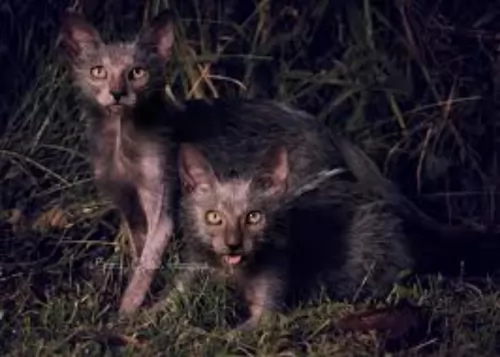 With the Lykoi’s lack of a coat, it isn’t going to require too much grooming. However, you have to keep a watch on this cat as without hair, he is vulnerable to sunburn and to getting cold.
With the Lykoi’s lack of a coat, it isn’t going to require too much grooming. However, you have to keep a watch on this cat as without hair, he is vulnerable to sunburn and to getting cold.
The cat has oily skin and it’s one cat breed that will need a bath occasionally. Some people recommend it once a week. Use warm water and a special pet shampoo recommended by your vet. Every trace of shampoo will need to be washed off to avoid the skin becoming irritated.
Provide your cat with food and water bowls, bedding, litter box, collar, grooming accessories and toys.
Cat food is a huge, important decision for any cat, as their very health depends on it. Commercially manufactured cat foods are available as wet and dry. Make sure you always get your cat food from a reliable source.
Some people believe in offering their cat both wet and dry options. Whatever you decide for your cat, remember that it needs to be at least 70% protein as every cat is a carnivore and requires a diet rich in protein.
If in any doubt, rather speak to your veterinarian and ensure that your Lykoi is getting the best food there is to promote good health. Always make sure that your cat has access to fresh cool water night and day.